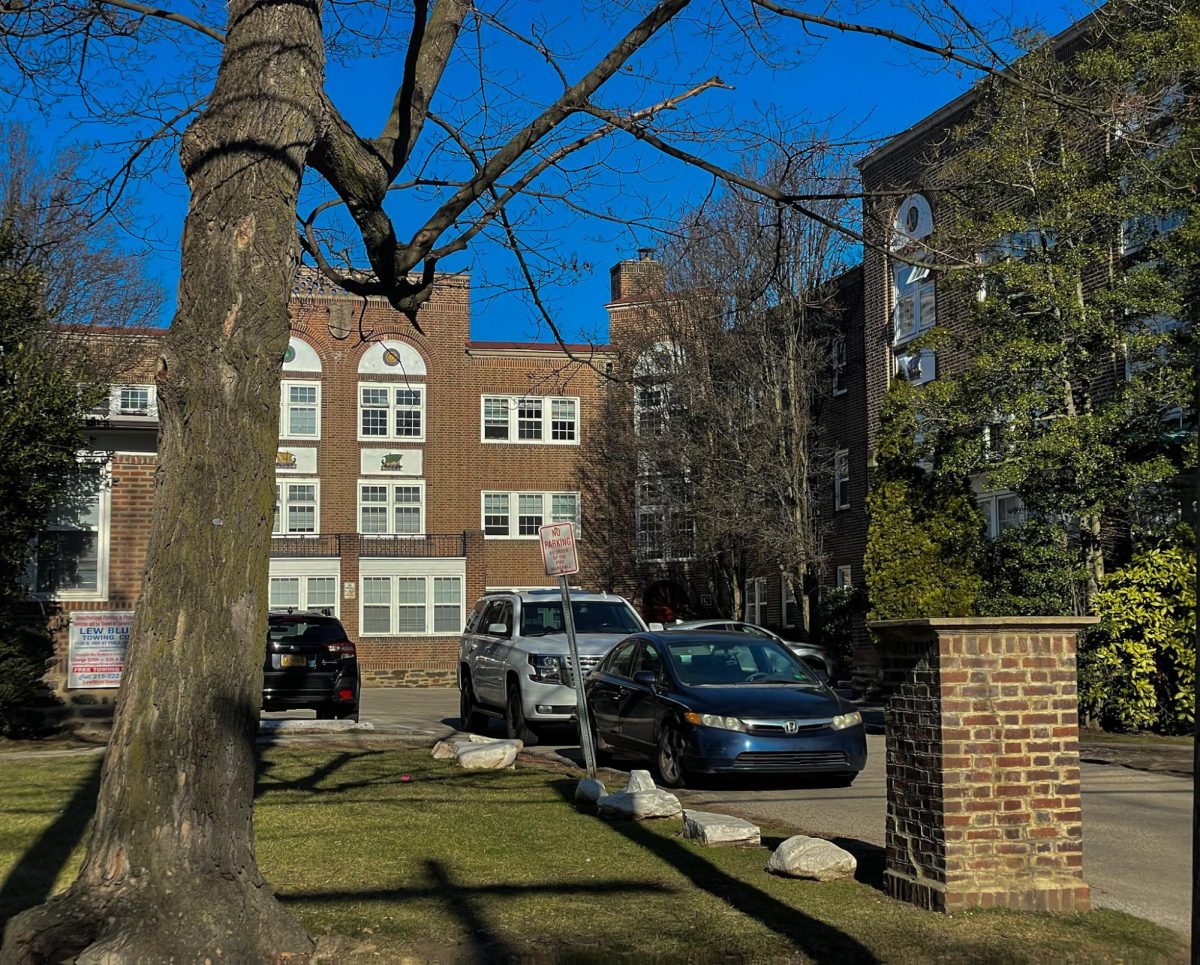For decades, College Hall at Marks Apartments, colloquially known as “Courts,” has been emblematic of the classic college experience. As embedded in Villanova culture as the campus itself, College Hall is home to more than 100 Villanova students and is a popular off-campus housing destination.
Although synonymous with tradition, College Hall has been the recent recipient of a concerted effort by both the Lower Merion Police Department (LMPD) and the University to crack down on residents’ behavior and conduct. This development is a direct result of increased standards held by community members and a lowered threshold for disorderly actions.
“College Hall is its own animal,” Lieutenant Edward Sarama of the LMPD said. “It’s an echo chamber.”
Lt. Sarama’s observation describes the duality of the conditions at College Hall. It is a literal echo chamber—sound reverberating off the padded walls—and a metaphorical one—the same issues have been compounding and amplifying each other over the years.
“Nothing that is happening [at College Hall] is new; in fact, behavior in the past was worse,” Sarama said.
So, if past students have lived at College Hall, hosted social events and conducted themselves similarly to or even more problematically than Villanovans today, why is there now a heightened attention on the property and harsher repercussions for current residents?
The answer lies in the neighbors. Police reports from the first two weeks of the Fall 2022 semester indicated that the LMPD received three complaint calls from community members related to College Hall. However, the same reports from the first two weeks of the Fall 2023 semester indicate that the LMPD received 10 complaint calls from the community related to College Hall.
These reports reveal that during the 2023 semester, three times as many complaints were received as the same period in 2022, pertaining to the 800 block of Montgomery Avenue, where College Hall is located. Descriptions for these incident reports include disorderly conduct/state law violation, noisy party, liquor law/18 years or older, and fire alarm activation.
“We don’t like going and writing college students tickets for being loud,” Sarama said. “Actually, when I drive past and hear noise, I usually just remind residents that it needs to be quieter. But the reality is that we work for the taxpayers, and those people who live around there are taxpayers.”
The increase in community scrutiny leads to a greater police presence at College Hall. Once there, officers enforce the law as they see it.
In early December of 2023, an underage Villanova student, who was invited to a social gathering at an of-age student’s apartment, walked into the courtyard with a plastic cup. Unaware of the officers that were present, he got into a car to go home, when he heard an officer tell him to get out of the car.
“I felt taken advantage of in the situation, and I felt like the officers wanted to make a scene while I was trying to explain that I just wanted to safely go home,” said the student, who requested anonymity. “Instead, I was forcibly removed from the car and spent the night in the Lower Merion Police Department Jail.”
The incident was shocking to the student, since both his dad and older brother used to live at College Hall during their time at Villanova, and he himself is planning on living there, too. Loved by two generations of his family, College Hall was the last place where he expected to receive a citation.
“As someone on lease at College Hall, it’s frustrating to take the blame for things out of my control,” a resident, who requested anonymity, said. “I am doing everything in my power to keep noise down during gatherings and mitigate risk, yet I still face consequences with the law and the school.
“The police officers that come to College Hall no longer exercise discretion. Previously, we could communicate with them about noise levels and the possibility of shutting down if necessary. Now, they are required to issue citations upon receiving noise complaints from nearby residents.”
It is a vicious cycle. Taxpaying residents call the police. Officers arrive at the scene, observe violations of laws and ordinance, and act. This action then creates a vested interest for the University.
“We receive referrals [to the Dean of Students office] from Lower Merion, not from Marks, and we are made aware that a student was cited,” Tom DeMarco, Associate Vice President for Student Life/Dean of Students, said. “Then, we do a follow up.”
DeMarco explained how most of the conversations do not result in probation, and instead are opportunities for an educational and developmental approach.
“[These follow up conversations] have been happening since I started at Villanova 27 years ago,” DeMarco said.
Traditional itself, this cycle of consequences appears to be a norm for the University. However, the University is interested in minimizing the number of incidents.
“There’s this sense that there are always citations or a police presence at College Hall, and I don’t want to just accept that,” Chris Kovolski, Villanova’s Assistant VP of Government Relations & External Affairs, said.
In this vein, the University hosted a Town Hall meeting on Jan. 29 in the Villanova Room, which was attended by Villanova administrators involved in off-campus housing, community relations and the Dean of Students Office. Also present was a representative from the Office of Fraternity and Sorority Life at Villanova, and the invitation to the Town Hall was extended to presidents of numerous Greek Life organizations on campus.
“If there was an increased number of citations in the fall, that would prompt us to want to do something different and to do something more,” DeMarco said. “I would rather be proactive than reactive.”
At first glance, the situation at College Hall seems to deal solely with black-and-white laws and ordinances, but the developments raise questions that all stakeholders will be answering for years to come.
First, there is the question of housing.
“When you get issued so many citations, a rental license can be revoked,” Sarama said.
It was suggested at the Town Hall that Marks Apartments is introducing a new student rental ordinance that will impact current and future residents. However, no one from Marks was present at the Town Hall and the company has declined to comment.
“I am on the lease for College Hall for the 2024-2025 school year, and I am figuring out a way to get off it,” an anonymous Villanova student said. “The situation seems confusing and unsafe, and I do not want to put myself in a situation where I have something on my record because of where I live.
This sentiment appears to be widespread among the next wave of College Hall residents and many are worried about where they will live next year.
Although Villanova currently guarantees three years of on-campus housing, there could be more than 100 students seeking new housing if they get out of their off-campus leases. This influx of unaccounted for students could challenge the University’s guaranteed estimate.
Another question is that of social events.
“It’s frustrating and sad for Villanova, because without Courts in the future, college kids that are no longer gathering in Bryn Mawr will be venturing to more dangerous areas like Philly, multiple times a week, where they cannot be supervised by older students or Villanova administrators,” a Villanova student and current resident of College Hall said.
“I wonder what the new College Hall will be,” another student said, suggesting that if the property becomes a thing of the past, another concentration of off-campus students will simply replace it.
Looking to the future, what college students, the LMPD and the University can agree on is the need to be good neighbors.
“There is a shared understanding that, as Villanovans, we are members of a greater community, and with that freedom comes responsibility,” another College Hall resident said.
“We do want everyone to be happy, and to do that, people need to work together,” Sarama said, explaining the new Lower Merion Community Harmony Program, which focuses on being a good neighbor and respecting local laws and ordinances.
In the evolving landscape surrounding College Hall, one thing is clear: the future holds both challenges and opportunities for fostering a stronger relationship between Villanova students, the University, the community and law enforcement officials.









